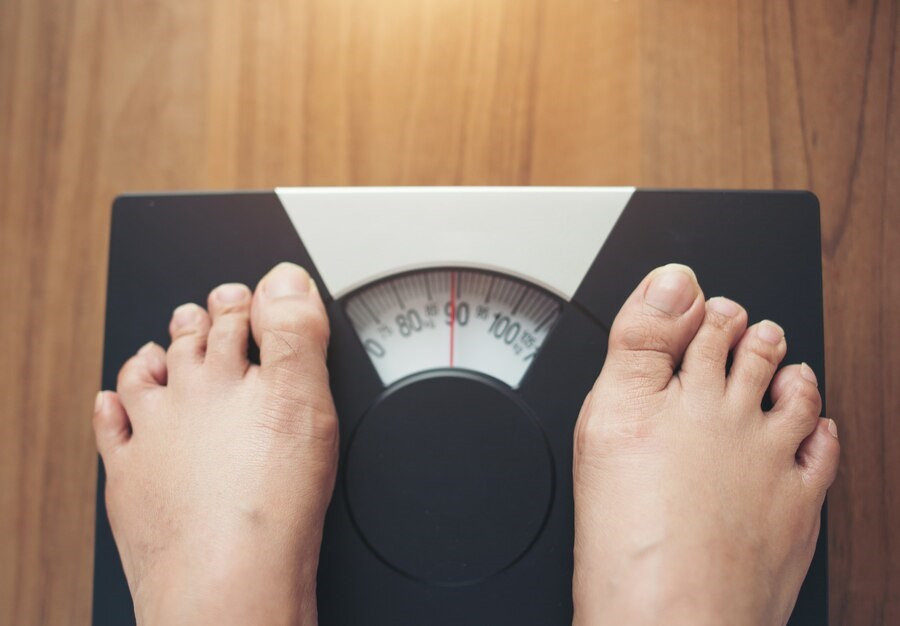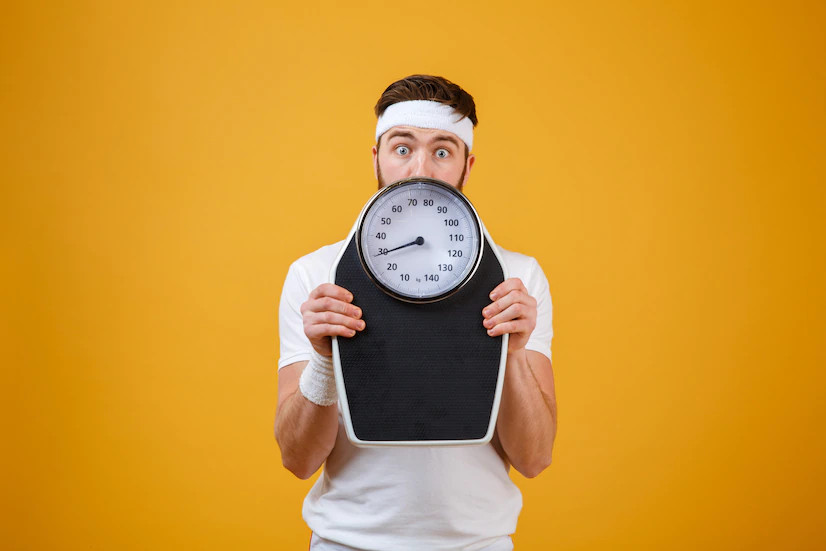Olahraga secara teratur memiliki banyak manfaat positif bagi tubuh dan kesehatan, mulai dari memberi tambahan energi, meningkatkan kualitas tidur, melawan stres, meningkatkan suasana hati, memperkuat otot dan membangun densitas tulang, mengurangi risiko penyakit kronis hingga membantu menurunkan dan mengelola berat badan.
Apa yang salah bila sudah berolahraga, tetapi berat badan tidak kunjung turun?
Penyebab Berat Badan Tidak Turun Walau Berolahraga
Tidak cukup waktu berolahraga
Untuk menurunkan berat badan, Anda perlu berolahraga dalam waktu yang cukup, tidak boleh kurang. American College of Sports Medicine (ACSM) dan CDC menyarankan aktivitas fisik derajat sedang selama minimal 30 menit sehari, lima hari dalam seminggu atau aktivitas fisik derajat berat minimal 20 menit tiga kali seminggu untuk menurunkan berat badan.
Makan terlalu berlebihan
Kebutuhan kalori setiap orang berbeda-beda, tergantung usia, jenis kelamin, dan juga tingkat aktivitas sehari-hari. Untuk menjaga berat badan, Anda tidak boleh mengonsumsi makanan melebihi panduan batas kalori harian.
Sedangkan untuk menurunkan berat badan, dulu direkomendasikan agar Anda mengurangi 500 kalori dari kebutuhan kalori harian. Saat ini, hal yang terpenting adalah defisit kalori secara realistis dan konsisten. Apabila Anda mengonsumsi lebih dari jumlah kalori yang disarankan, maka Anda akan kesulitan untuk menurunkan berat badan meskipun sudah berolahraga rutin.
Baca Juga: Berapa Kalori yang Harus Dibakar Setiap Hari Agar Berat Badan Turun?
Tidak makan cukup protein
Kebutuhan protein setiap orang juga dipengaruhi oleh faktor usia, komposisi tubuh seperti massa otot tubuh tanpa lemak, kesehatan Anda dan tingkat aktivitas setiap hari. Jumlah protein yang bisa diserap oleh tubuh umumnya berkisar 25-35 gram per hari.
Menurut penelitian, diet tinggi protein bisa membantu dalam menurunkan berat badan dan mengurangi risiko penyakit jantung. Anda bisa merasa kenyang lebih lama karena efek protein terhadap hormon ghrelin yang mengatur nafsu makan. Anda disarankan untuk memiliki 10-35 persen protein dari kebutuhan kalori harian, dalam makanan yang dikonsumsi setiap harinya.
Kebutuhan protein bisa dicukupi dari berbagai sumber, di antaranya:
- Telur
- Susu
- Ikan dan sari laut lainnya
- Polong-polongan
- Unggas
- Kacang-kacangan dan biji-bijian
- Tahu dan tempe
Anda juga mungkin ingin mencukupi kebutuhan protein dengan mengonsumsi susu protein. Dalam memilih susu protein, ada beberapa hal yang perlu dicermati:
- Pilih yang kandungan proteinnya lebih dari 10-15 gram
- Pastikan total karbohidrat di bawah 15 gram
- Pilih susu protein dengan jumlah kalori kurang dari 200-250
- Pilih susu protein dengan tambahan gula di bawah 5 gram
Masih gemar minuman manis
Asupan gula berlebihan terutama dari minuman manis dapat menyebabkan konsumsi kalori yang berlebihan. Minuman manis juga tidak memberikan rasa kenyang yang sesuai sehingga Anda cenderung lebih cepat lapar. Karena belum merasa kenyang akhirnya Anda akan makan dan menambah asupan kalori yang pada akhirnya berkontribusi pada peningkatan berat badan.
Baca Juga: Inilah Buah-Buahan yang Tinggi Kadar Gulanya
Tidak cukup tidur
Kurang tidur dapat mengganggu keseimbangan hormon yang mengatur nafsu makan dan metabolisme. Hal ini menyebabkan Anda ingin makan makanan yang lebih tinggi kalori atau tidak sehat, misalnya seperti gorengan, es krim, atau makanan berlemak lainnya.
Orang dewasa dianjurkan untuk tidur 7-8 jam per malam untuk dapat membantu menurunkan dan mengelola berat badan yang sehat.
Makan karbohidrat berlebihan
Walaupun karbohidrat digunakan sebagai energi, namun mengonsumsinya terlalu banyak dapat menyebabkannya disimpan sebagai cadangan lemak tubuh. Konsumsi karbohidrat sederhana berlebihan dapat memicu lonjakan gula darah yang cepat, menyebabkan rasa lapar yang lebih cepat dan risiko diabetes tipe 2.
Diet rendah karbohidrat jangka pendek telah terbukti membantu menurunkan berat badan. Hasilnya bisa terlihat dalam 6-12 bulan.
Selain semua hal di atas, Anda mungkin kesulitan menurunkan berat badan karena kondisi kesehatan yang melatarbelakangi, misalnya hipotiroidisme atau PCOS. Apabila Anda sudah menjalani pola makan sehat dan berolahraga cukup dan teratur namun berat badan tak kunjung turun, sebaiknya konsultasikan dengan dokter atau ahli gizi. Anda juga bisa memanfaatkan layanan konsultasi kesehatan dengan mengunduh aplikasi Ai Care melalui App Store atau Play Store.
Mau tahu tips dan trik kesehatan, pertolongan pertama, dan home remedies lainnya? Cek di sini, ya!
- dr Hanifa Rahma
Kris Gunnars, BSc (2023). 14 Common Reasons You’re Not Losing as Much Weight as You Expected. Available from: https://www.healthline.com/nutrition/20-reasons-you-are-not-losing-weight#why-am-i-not-losing-weight
Cleveland Clinic (2021). 13 Benefits of Exercise. Available from: https://health.clevelandclinic.org/benefits-of-exercise-other-than-weight-loss/
Jenn Sinrich (2022). How Much Do You Need to Exercise to Lose Weight?. Available from: https://www.verywellfit.com/how-much-exercise-to-lose-weight-3495493
Kathleen M. Zelman, RD, LD, MPH (2023). How Many Calories Do You Really Need?. Available from: https://www.webmd.com/diet/calories-chart
Cleveland Clinic (2022). 4 Ways Protein Can Help You Shed Pounds. Available from: https://health.clevelandclinic.org/how-much-protein-to-eat-to-lose-weight/
Rob Newsom (2022). Weight Loss and Sleep. Available from: https://www.sleepfoundation.org/physical-health/weight-loss-and-sleep












